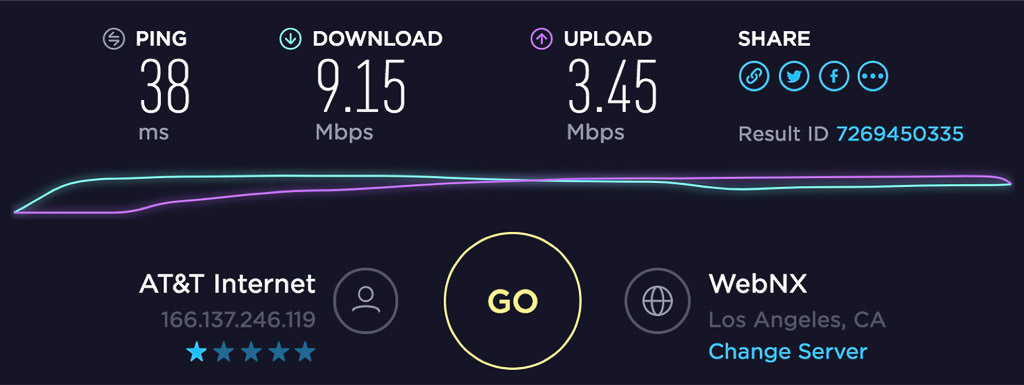
Staying Connected on the Road
You're nestled among some pines, with a clearing overlooking a majestic mountain or a pristine lake. Taking it all in with a deep breath of fresh mountain air. You get ready to roll out the awning, pour some drinks, and break out the camp chairs -- only to realize that you have no cell signal and a conference call in the morning.
One of the biggest challenges of RVing is staying connected while on the road. Don't assume you'll escape the struggle to stay connected by staying at an RV park with Wi-Fi. There are many a park that advertise Wi-Fi as an amenity, yet their Wi-Fi couldn't load a webpage if it were 1999.
Most RVers are dependent on connectivity for work, entertainment, or keeping in touch with friends and family. Whether you're boondocking or camping at an RV park, the struggle is real. So, what can you do to stay connected on the road?
Plan Ahead
Staying connected while RVing is the worst part of being on the road because there is no silver bullet. Staying connected is dependent on so many variables. So, a solution that was best for today won't necessarily be the right one tomorrow. Therefore, the number one thing you can do to avoid struggling with connectivity is to plan ahead.
Do you have a conference call? A deadline? Is it Uncle Bob's birthday? Do not plan your drive days to coincide with any day on which you know you will need to be connected. Trust us, you won't make it to where there is signal in time, and whatever coverage map you checked for signal along your driving route is probably wrong. Dead zones multiply when you are desperate for signal.
Take it from someone who once had signal the whole way through a six-hour driving day, except for the one hour of the day during which their conference call took place. I'll never know what that call was about, but I do know you will save yourself a tremendous amount of stress if you plan to arrive to your destination at least a day and a half before you need connectivity. Arriving that early gives you time to assess the connectivity available and come up with a Plan B that you can test. (Don't assume the coffee shop an hour away you found on Google Maps has signal or will be open when Google says it is. Go check it out in person, trust us.)
Know What You Need
Another very important part of being able to stay connected on the road is knowing what you need. Do you just need to text and email or are you looking to video conference? Are you looking for fast upload speeds or download speeds?
As an example, we focus on uploading video to our YouTube channel and our work involves video conferencing or regular conference calls, which need a strong and stable connection, so the call won't drop.
For those needs, we know we are mostly after fast upload speeds. We check our speeds with the speedtest.net app. If you don't have the app you can also use it here.
 These are our speedtest.net results from our second carrier while boondocking in Flagstaff. Cherie and Chris of Technomadia recommend 5 MB download and 2 MB upload. Don't automatically turn on your cell booster. If speeds are good, turn your cell booster off.
These are our speedtest.net results from our second carrier while boondocking in Flagstaff. Cherie and Chris of Technomadia recommend 5 MB download and 2 MB upload. Don't automatically turn on your cell booster. If speeds are good, turn your cell booster off.
Know the Gear
Once you know what you need, you can avoid buying the wrong tool for the task and buy the right piece of equipment. Let's take a look at what we mean, by using our own example above.
Because our top needs are uploading video to our YouTube channel, as well as both video and traditional conference calls, we know we are looking for a tool that can help with fast upload speeds and steady cell signal. If you're thinking, "I wouldn't know what tool does that", don't worry, we didn't either. Chris and Cherie of Technomadia have a wonderful resource that teaches you all of the technical stuff over at the Mobile Internet Resource Center.
For us, looking at their "Gear Center" product overviews and reviews taught us that a cell booster would help us with what we are looking for. In their "Cellular Booster Guide," we learned that cell boosters improve signal strength and stability which means less dropped calls, and that boosters increase upload speeds if you are on the fringes of a tower's range. In the reviews, we can see that their most-recent top pick is the WeBoost Drive 4G-X OTR.
If your needs are different than ours, you can follow the same process on the Mobile Internet Resource Center to find out what tool you need and what the top pick is. Definitely do your research, so you are not disappointed because you bought the wrong tool for your particular situation.
Know When Gear Won't Help
Lastly, be aware of when gear cannot help you. Cell boosters, Wi-Fi extenders, and Cellular Antennas are not magical by any means. For example, a cell booster cannot help if there is no signal to boost. If there is no signal where you are, it won't work and it's not the cell booster's fault. Also, be aware that if you are being throttled by your cell carrier, a cell booster and cellular antenna can't help (because your carrier is causing the slow speeds, not the signal). And the same goes if you're in an area where the tower is congested. Also, be aware that Sprint cannot be boosted.
Avoid frustration by knowing the limitations of whatever gear you are purchasing and be aware of a few alternatives. When gear can't help, we look for coffee shops, libraries, and co-working spaces to stay connected.
 Libraries, coffee shops, and co-working spaces are great connectivity backups. One of our favorites was the Seattle Public Library.
Libraries, coffee shops, and co-working spaces are great connectivity backups. One of our favorites was the Seattle Public Library.
Another backup that has worked well for us is to have plans with two carriers. Our primary plan is with Verizon. We have a Verizon hotspot along with our phones. Our second carrier is AT&T. This helps us when there is congestion, or when one of our carriers is throttling us.
If you are an avid RVer, it's likely that you will eventually want all of the different type of gear out there that can help you stay connected on the road -- especially if you are working. As great as it is to build up a toolkit with an answer for every situation, try starting by finding what your needs are the majority of the time, and first find a solution for that.
Comments
Comments on this post are moderated, so they will not appear instantly. All relevant questions and helpful notes are welcome! If you have a service inquiry or question related to your RV, please reach out to the customer care team directly using the phone numbers or contact form on this page .